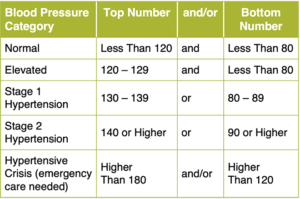PSA In Good Health 2023 Volume 4
Posted in: Employee Benefits
Know Your Numbers
We use important numbers every day: phone numbers, social security numbers, driver’s license numbers. But do you know the numbers that can potentially save your life?
Blood glucose, blood pressure, and cholesterol are important numbers to help you understand your risk factors for diseases like diabetes, heart disease, and stroke.
Depending on your age and family risk factors, your doctor will check some or all of these during an annual physical exam. Establishing a baseline helps catch changes in your numbers early. This typically allows for more treatment options that can enhance the quality and length of your life. Early intervention can also be significantly less costly.
Blood Glucose
Blood Glucose is also called blood sugar. When you eat, your body breaks down most of the food into sugar and releases it into your bloodstream to be used as energy.
Knowing your blood sugar level is important because Type 2 diabetes is characterized by high blood sugar. Below is the breakdown published by the CDC of blood tests and values for blood glucose levels.
Learn more about preventing diabetes.
Blood Pressure
Blood Pressure is the measure of force against the walls of your arteries when the heart beats and relaxes. When your numbers are too high, it is called hypertension, or high blood pressure. Hypertension is often called the “silent killer” because most people that have it don’t feel sick. Left untreated, it can cause heart disease, stroke, and sudden death. The only way to know if you have hypertension is to check your blood pressure. Here are the categories as published by the American Heart Association.
Learn more about preventing hypertension.
Cholesterol
Cholesterol is a waxy substance your body needs to build cells and make vitamins and other hormones. Your liver makes all the cholesterol you need, but we also get cholesterol from eating animal products. A blood cholesterol profile measures three components: Low-density lipoprotein (LDL), High-density lipoprotein (HDL), and Triglycerides.
High cholesterol contributes to a higher risk of cardiovascular diseases, such as heart disease and stroke. Learn more about the different types of cholesterol and how to prevent high cholesterol.
If you have further questions regarding any health matters, feel free to contact Danielle Herndon, RN, CMM – VP, Health Risk Management, at dherndon@psafinancial.com. To learn more about PSA’s In Good Health flyers, visit www.psafinancial.com/category/employee-benefits/.





